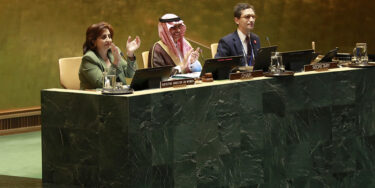Moroccan police, prosecutors, judges, and other authorities often fail to prevent domestic abuse, punish the abusers, or assist survivors, Human Rights Watch said today in a letter to the Moroccan government.
In part, that is because Moroccan laws don’t provide officials with guidance on responding effectively.
Human Rights Watch in September 2015, interviewed 20 women and girls who had suffered domestic abuse. They said that their husbands, partners, and other family members punched, kicked, burned, stabbed, and raped them, or subjected them to other abuse. Human Rights Watch also interviewed lawyers, women’s rights activists, and representatives of organizations providing shelter and services to survivors of domestic violence. Morocco should strengthen and adopt draft laws that would improve protection for victims of domestic violence.
“Many women and girls enduring domestic violence don’t get the help they need from Moroccan authorities,” said Rothna Begum, Middle East and North Africa women’s rights researcher at Human Rights Watch. “Adopting and enforcing a strong domestic violence law would not only help victims, but also help the authorities do their jobs.”
A national survey of women aged 18 to 65 by the Moroccan High Commission for Planning found that in 2009 nearly two-thirds – 62.8 percent – had experienced physical, psychological, sexual, or economic violence. Of the sample interviewed, 55 percent reported “conjugal” violence and 13.5 percent reported “familial” violence. Only 3 percent of those who had experienced conjugal violence had reported it to the authorities.
Most of the domestic violence survivors Human Rights Watch interviewed said they had sought help from police, prosecutors, or courts. But many said police officers refused to record their statements, failed to investigate, and refused to arrest domestic abuse suspects even after prosecutors ordered them to. In some cases, police did nothing more than tell victims to return to their abusers.
Read the full story from Human Rights Watch




